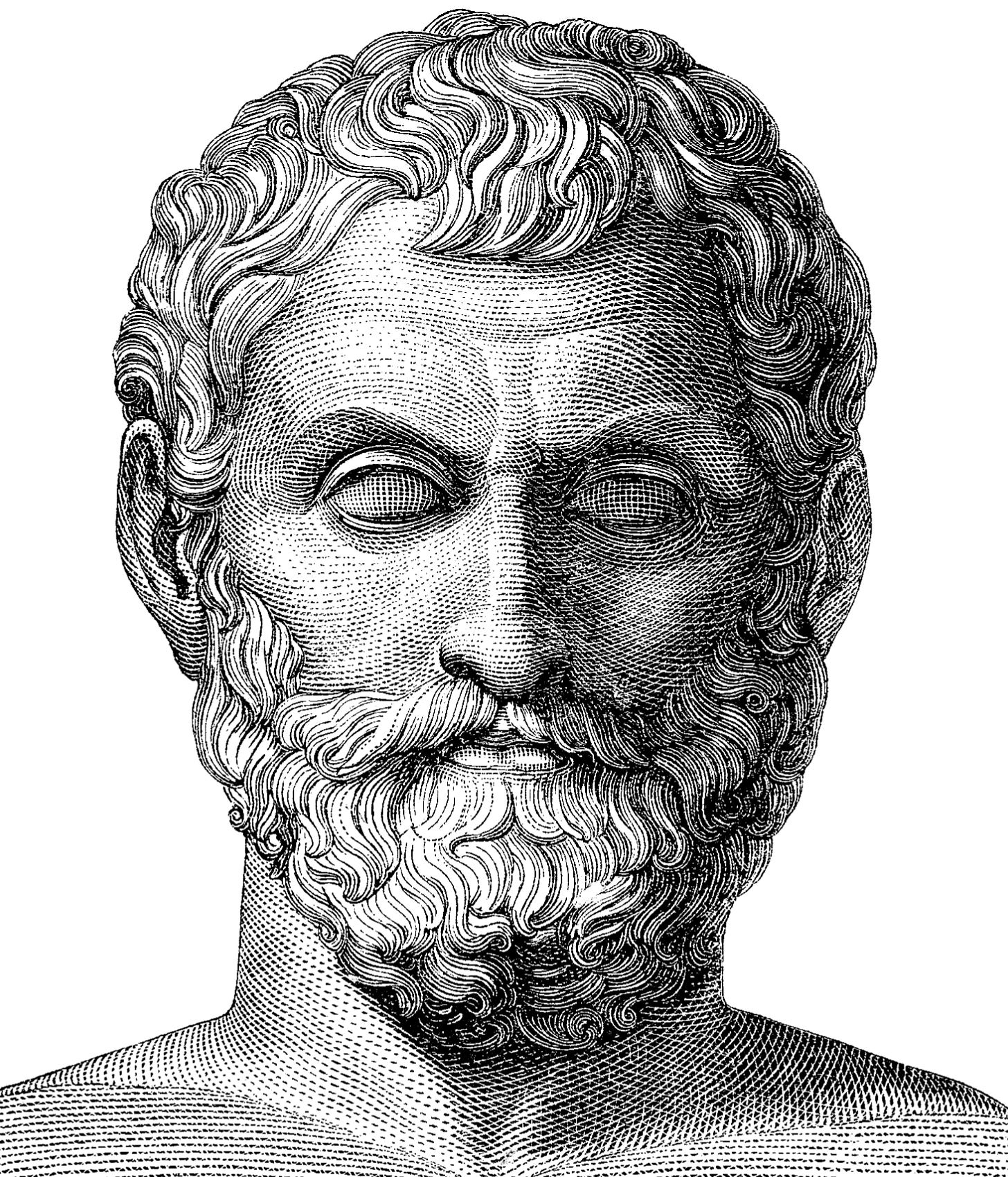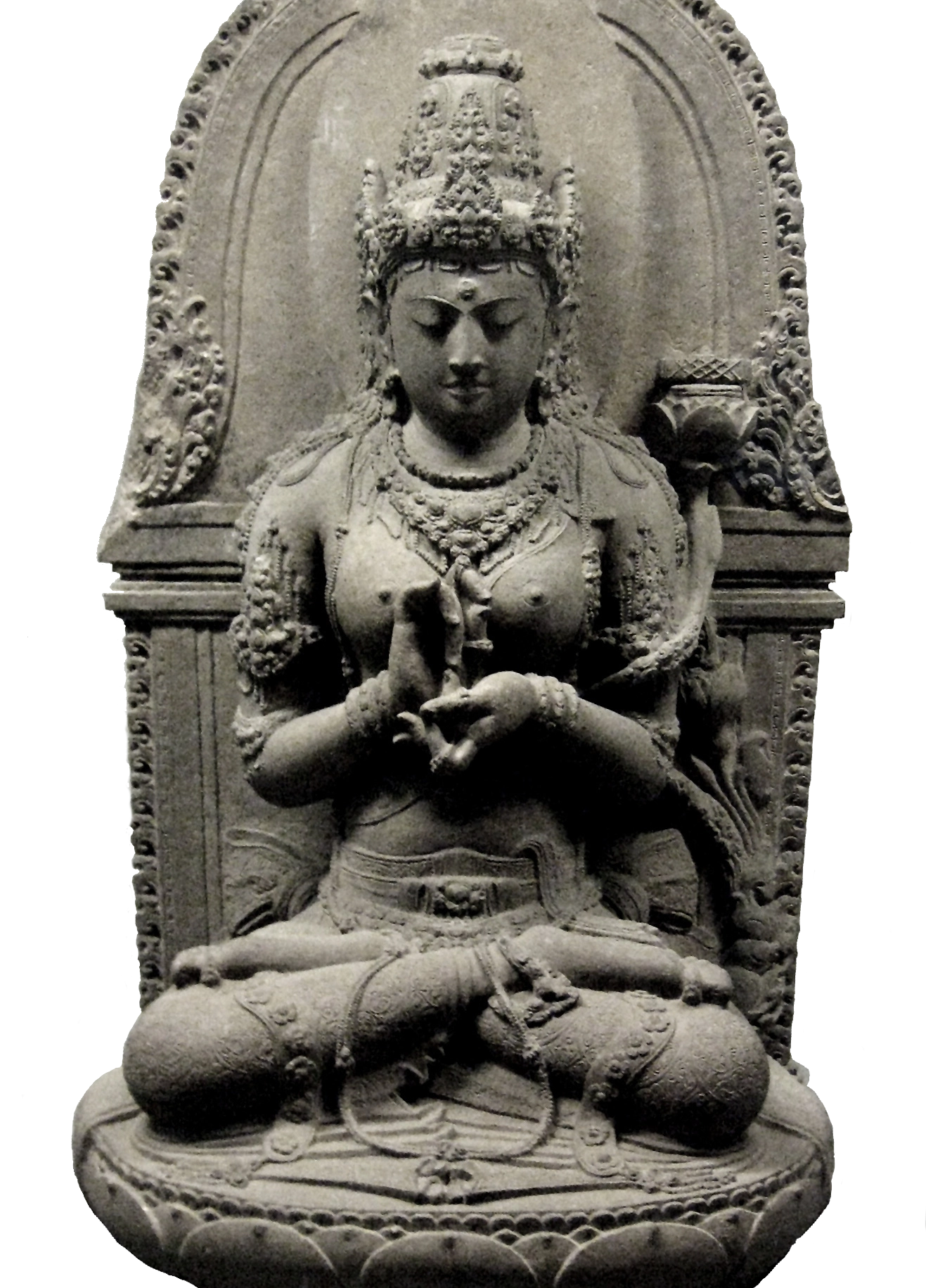Philosophy doesn't work
Its methods yield mainly wrong or nonsensical conclusions. We can and should do better.
In the beginning…
Thales was the first known philosopher. He is also often credited as the founder of mathematics, science, and rationality. His central claim was that everything is really water.
Parmenides was the most influential philosopher of all time. His central claim was that change, differences, and physical objects are impossible and illusory.
You may not have heard of Parmenides, but you probably know about the proofs of the impossibility of motion developed by his main disciple Zeno. (Achilles and the tortoise, or the paradox of the arrow.)
Plato’s main job was trying to make Parmenides’ conclusions make sense—because he was convinced, by rational arguments, that they were true. (It is said that philosophy consists of footnotes to Plato. This is wrong; Plato consists of footnotes to Parmenides.)
Plato acknowledged Parmenides’ conclusion that, in reality, there is only One thing. It is outside time and space, because time and space are impossible and don’t exist. Nevertheless, it seems we are subject to the immiserating and deceitful illusion that there exist multiple, changing objects. How can this be?
Plato posited an intermediate realm of multiple Ideal Forms that are non-physical, unchanging, and perfect, but which (unlike squirrels and spoons) really exist. It’s generally agreed—even by Plato—that this vague and self-contradictory theory makes no sense whatsoever, and would not solve Parmenides’ problem even if it did. Unfortunately, however, it is the basis for the whole subsequent Western intellectual tradition.
This is Chapter 1 of “Undoing Philosophy.” Start with Chapter 0, if you haven’t already read it!
Like most of my posts, this one is free. I do paywall some as a reminder that I deeply appreciate paying subscribers—some new each week—for your encouragement and support. It’s changed my writing from a surprisingly expensive hobby into a surprisingly remunerative hobby (but not yet a real income).
… even unto the present day
It’s well-known that these Ancient Greek philosophers were the wisest men who ever lived; but nevertheless philosophy has made considerable progress in the millennia since.
For example, Peter Unger is one of the best contemporary philosophers. I really like his work. Unlike pomo obscurantists, he writes in plain and engaging English. He has made major contributions to metaphysics, epistemology, ethics, and the philosophy of mind. His work in moral philosophy was one of the major inspirations for the Effective Altruism movement, which I consider (on balance) a Very Good Thing.
Unger has also proven that nobody knows anything. Also that he, personally, does not exist, that there are no people, nor any other things, and that language is impossible.
Reminder: I’m doing a live video AMA this Saturday, the 23rd, 9 a.m. Pacific.
Put your questions in the chat!
“Well, then Unger is a crackpot!”, you say. But he’s widely respected in academic philosophy for his technical excellence and inventiveness. His arguments are really good. They convinced me at one time. It took a lot of work (and advice from a philosophical mentor) to find my way out of that.
He is not a crackpot—other than in the sense that all philosophy is crackpot. He is an outlier, in being willing to actually do philosophy. He takes philosophical methods seriously, and accepts their results. Lesser philosophers invert the process, starting with some fashionable opinion or half-baked “intuition,” and work backward from that desired conclusion to construct supporting arguments whose gaps you can drive a hippopotamus cart through.
He is not an outlier in being willing to argue for obviously false things. (He just does a better job.) I can’t, offhand, think of any famous philosopher whose major claims didn’t include some that are contradicted by uncontroversial everyday facts.
Something has gone terribly wrong. Philosophy’s methods simply don’t work. Not that they never yield accurate conclusions; but that they are sufficiently unreliable that you shouldn’t use them. Yet somehow no one seems to care.
You object:
Surely the subject matter of philosophy is enormously important, and we can’t just give up. Even if available methods are imperfect, they are the tools we have, and we should do the best we can with what we’ve got, and expect (or hope) to get gradually better at it.
This is wrong. Better methods—discussed later in this work—are available. And many of the purported topics of philosophy are pseudo-problems arising from confusions created by its methods, so we can simply drop them.
All philosophy is rationalist
By “rationalism,” I mean overestimating reasoning’s ability to reach accurate conclusions. It often manifests as an eternalist faith that reasoning is universally applicable and invariably reliable, if performed according to proper standards. In the Cells of the Eggplant explains why rationalism is mistaken and harmful, in non-philosophical language for the STEM-educated.
All philosophy is rationalist, inasmuch as its main method is the working-out of reasoned arguments. As we have seen, from Thales to Unger, that is generally unreliable. This is a clear case of rationalist failure. There is probably no philosophical question about which philosophers agree, although there are reasoned arguments both for and against. Many of those arguments must be wrong, since they contradict each other directly.
You object:
Much of philosophy is obviously irrational! There’s all that obscurantist pomo French stuff, for example, not to mention the German Wortsalat of Hegel and Heidegger!
But those guys presented, almost entirely, slabs of reasoning. Much of it may be bad reasoning that results in wrong conclusions. In that case, it could accurately be described as “irrational”; but it is nevertheless philosophical reasoning. It is rationalist, in demonstrating unjustified faith in reason’s adequacy.
So, you say:
We just need to get rid of the irrational bad reasoning that results in wrong conclusions, hose out the Augean stables of philosophical bovid egesta, uphold genuine rationality, and all will be well!
But it has proven impossible to find criteria that ensure reasoning will work. The last credible attempt was logical positivism, which unambiguously and uncontroversially failed (as The Eggplant explains). That was more than half a century ago; no one has seriously tried since. Contemporary analytic philosophy, the academic mainstream in America, is the heir to logical positivism. Mostly it would happily describe itself as rationalist. Yet it frequently derives absurdities.
Rationality can be extremely powerful and valuable in some situations, for some purposes. In others, it is powerfully misleading and of negative value. Meta-rationality can often determine whether, and how, to rely on which reasoned arguments.
Myth and metaphysics
It is conventional to state that Ancient Greek philosophy “emerged from” mythology. Myth, says philosophy, is the subterranean lair of the Earth-Mother Water-Snake Goddess: the stygian cave up from which heroic Plato, holding aloft the Torch Of Reason, leads the ignorant, deluded by deceptive falsehoods, into the Light of The True and The Good.
Myth is a fundamental and indispensable means of meaning-making. Philosophical rationalism objects that myths are false, and that the gods, sorceresses, and demons it deals in do not exist. But, at best, that is the pot calling the kettle black. Philosophy mostly generates wrong and harmful ideas itself, and the abstract, metaphysical objects it deals in also do not exist.
It is worse than parity, though. “Truth” is irrelevant to myth, whereas it is central to philosophy. The non-existence of gods is not a defect for myth. The non-existence of “propositions” is fatal for rationalism.
The vastness of the visionary realm accessed through myth cheerfully accommodates unbounded nebulosity. Myths constantly contradict themselves and each other; and that is not a problem, because they are neither true nor false. Their pluripotent denizens, neither existing nor failing to exist, are vividly varied, and yet the same, as one turns into another. Sameness and difference themselves, existence and non-existence, are one and the same—and also different.
The shape-shifting Chaos Dragon becomes an ogress, a vampire, the Himalayas, the night sky, and then appears to you as the Goddess Prajñaparamita, incarnation of Cosmic Emptiness and Wisdom.
She whispers words in your ear as you make love. You can never quite remember them after.
When you wake, she is gone. “Where?” you ask the Wise Old Man, distraught.
“She is no other than the nature of your own mind.”
What??

“Also, that thunderclap we just heard… Do you see the irises by the stream?”
How useless… there is still far to go. In a thunderstorm.
Metaphysics is the mythical mode of meaning-making mutated and mutilated by rationalism.
Plato proposed to lead the ignorant out of the physical, perceptible world of herons and hacksaws and heartaches into the metaphysical realm of imperceptible Pure Ideal Forms, outside of time and space. This supposed metaphysical realm is a cardboard cut-out imitation of the mythical realm, tidied up and drained of color by dour Puritan rationalist demands.
Thales’ insistence that everything is water was wack, but at least you can stick your hand in a pond and confirm that it is wet. It is usually acknowledged that metaphysical beliefs and arguments rely mainly or entirely on “philosophical intuition.” This “intuition,” a pale shadow of visionary experience, notoriously fails to engender agreement.
Rationality denies that there are dragons that can turn into mountain ranges or the sky—and rightly so, for rational purposes. Rationalism rejects the mythical mode on the misapprehension that they conflict. Myth and rationality are, however, complementary ways of reasoning. They need not conflict, so long as we give meta-rational consideration to which to use for what purposes in which situations.
All philosophy is contaminated with metaphysics
That metaphysics is comprehensively bogus is widely accepted, even by many professional philosophers. So, maybe just excise that subfield from philosophy, or at least ignore it? The rest is worthwhile, presumably. We need answers to ethical questions, for example, and philosophy offers them.
The problem, however, is that all philosophy is metaphysical. To consider something “philosophically” just is to consider it with reference, explicit or implicit, to metaphysics. If you consider something without mixing in metaphysical ideas, you are just doing ordinary thinking, not philosophy.
To simply think well, including to think rationally, does not count as doing philosophy. For example, technical education trains you to think well and rationally about transistors and enzymes and web servers. Doing so is not philosophical. One could think philosophically about those things—by bringing in metaphysical abstractions—but that would probably be bad and dumb.
All the philosophical subfields are pervasively metaphysical. Epistemology, for example. It’s supposedly an enquiry into how we can know things, but it immediately exits reality into the metaphysical realm. The main entities it considers are “propositions,” which are mind-independent non-physical objects that live in Plato’s Realm of Ideal Forms, but which are somehow entangled with the physical world. It’s acknowledged by epistemologists that this is contradictory, and no one can explain how it could work. It doesn’t.
Propositions are pure metaphysical nonsense, and everything in epistemology is downstream from them them, so the rest of it is nonsense too. Epistemologists have promulgated colorful fantasies about all the things propositions can do, and how, but the current state of the field is a pervasive sense of failure.
We do often want to know how we can know things, but we want practical answers, not metaphysics.
I suspect my spouse has fallen out of love with me and may be flirting with having an affair, but I’m not sure; maybe this is just neurotic anxiety speaking?
This poses pressing questions about what you can know, and how. Is epistemology going to help? No, obviously not. For instance, considering its distinction between propositional and doxastic justification would not contribute, although it is formally relevant.
It’s tempting here to run through the major subfields of philosophy, pointing out how their principal concepts are unavoidably metaphysical, and therefore fail to make contact with reality. I want to keep this post to a reasonable length, so I won’t. And, either you get the point already, or more examples probably won’t change your mind.
Chapter 2 of “Undoing Philosophy” is “Philosophy isn't...” Read it next!











'Rationality can be extremely powerful and valuable in some situations, for some purposes. In others, it is powerfully misleading and of negative value. Meta-rationality can often determine whether, and how, to rely on which reasoned arguments.'
Critiquing rationality and its limits has been a central topic of philosophy since the beginning, eg, first Greek skeptic philosopher, Pyrrho: https://en.wikipedia.org/wiki/Pyrrho . Since your meta-rationality project, like philosophical texts, contains a substantial number of "slabs of reasoning", I'm finding it difficult to distinguish your project of explaining* how to deal with the limits of rationality from philosophy.
I realize that this chapter and chapter 0 are the start of an attempt to explain* the difference, but every attempt to "explain* how "I'm not doing (or I'm going beyond) philosophy" that I've ever seen has ended up being considered yet more philosophy. And these two chapters give me the feeling that your attempt will meet a similar fate.
I understand that your 'bad brain' is inspiring you to make this attempt. I wish I could inspire you to abandon it and return to working on meta-rationality, meaningness, or whatever it has morphed into. I predict that when you complete your main work, if it is different from philosophy, the differences will shine forth as clear as day.
While your jeremiad against philosophy is entertaining, I find your main work so much more insightful and useful that I'm sad to see your bad brain distract you from it. Ultimately, who cares how your work is labelled by others? I think most of your readers could care less whether it counts as philosophy or not.
* Of course, "explaining" is applying rationality to generate slabs of reasoning. And explaining by comparing and contrasting conceptual frameworks is usually some form of philosophizing.
You might find this funny - one of the words for 'crackpot' in Hindi-Urdu is 'aflatoon'. The word 'aflatoon' is actually the Arabicised name of Plato. People perceived Plato's ideas as so crackpot-ish that his name became a synonym of crackpot in those languages. Most Hindi-Urdu speakers are unaware of the etymology so if you go to India/Pakistan and call someone 'aflatun' they will just hear 'crackpot'.
There is, of course, a Bollywood movie by that title, named so for featuring a supposedly eccentric, crackpot protagonist :D
https://en.wikipedia.org/wiki/Aflatoon_%281997_film%29